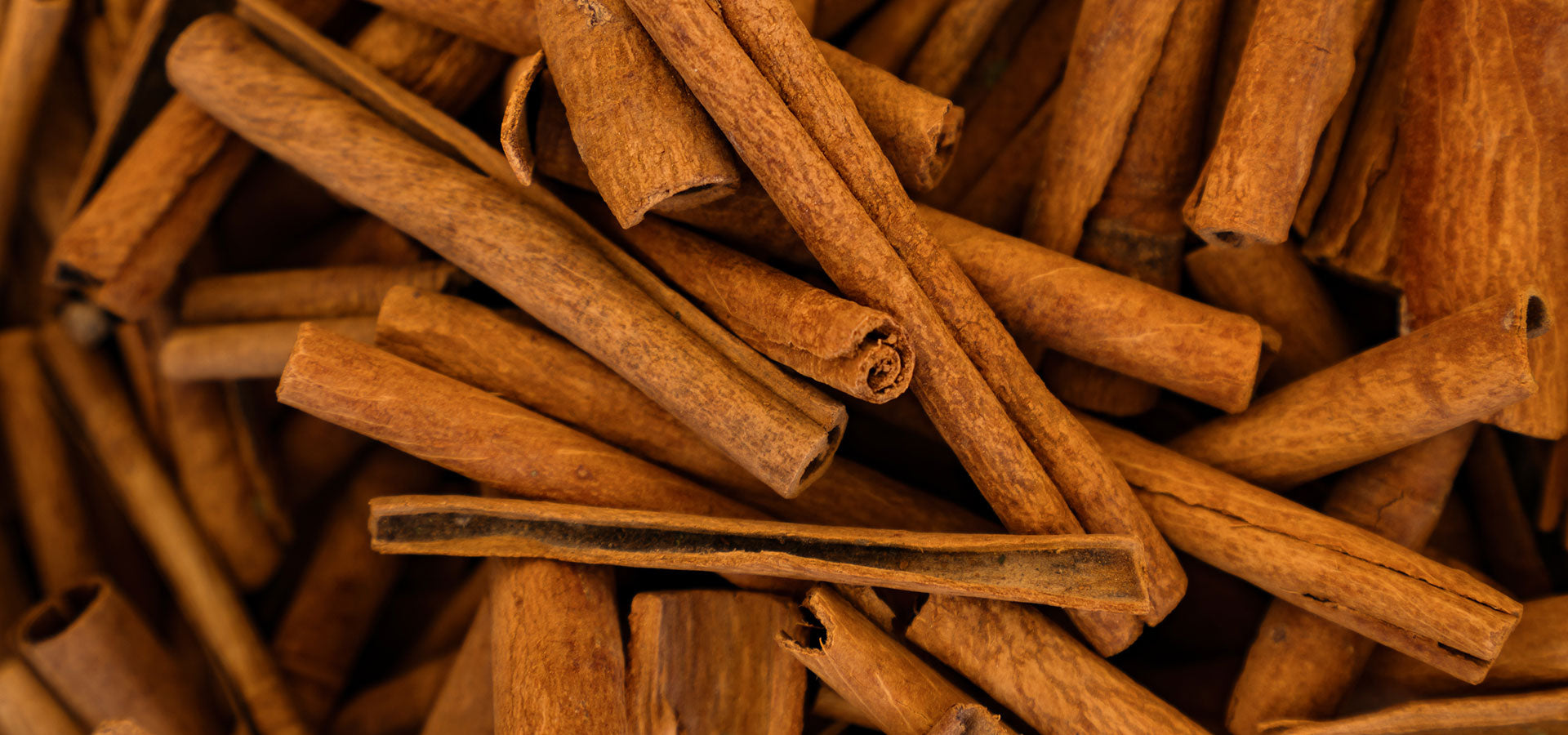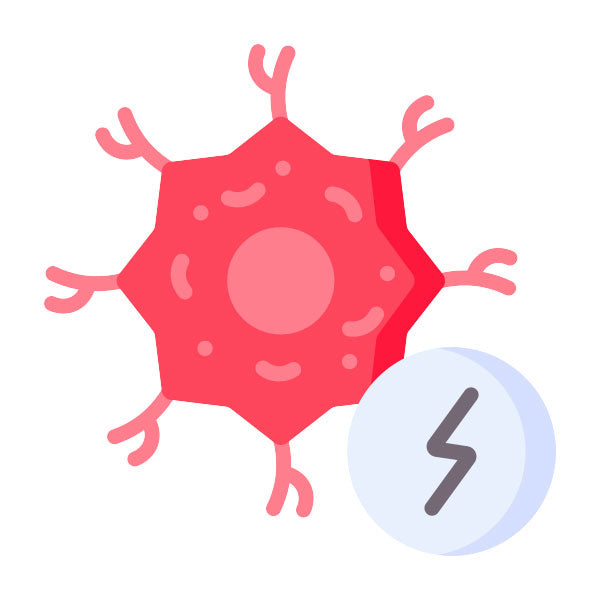WHAT IS CINNAMON?
Cinnamon is a spice obtained from the inner bark of trees belonging to the Cinnamomum family. There are several varieties of cinnamon, with the two most common types being Ceylon cinnamon (Cinnamomum verum or Cinnamomum zeylanicum) and Cassia cinnamon (Cinnamomum cassia). These distinct varieties vary in taste, aroma, and composition, which can impact their potential benefits.

HISTORICAL SIGNIFICANCE AND ORIGIN
Cinnamon, known scientifically as Cinnamomum verum or Cinnamomum zeylanicum, has a rich history dating back to ancient Egypt. It was a prized possession in the spice trade, revered not just for its flavor but also for its healing properties. True cinnamon, or Ceylon cinnamon, originates from Sri Lanka and southern parts of India.
TYPES OF CINNAMON
CULINARY USES OF CINNAMON: BEYOND SWEET AND SAVORY DISHES
While Cinnamon is often associated with sweet dishes like cinnamon rolls and apple pies, its culinary uses extend far beyond. This versatile spice can transform savory dishes, lending a warm, complex flavor to curries, stews, and roasted vegetables. It's a staple in many Middle Eastern and North African cuisines, used in spice blends such as Garam Masala and Ras el Hanout. Cinnamon also enhances beverages; a stick added to coffee or tea imparts a subtle spiciness and aroma. Its adaptability in cooking is not just limited to flavoring - it can be used as a natural food preservative due to its antibacterial properties. By understanding the different types of cinnamon - Ceylon and Cassia - cooks can choose the right variety to complement their dish, whether they're seeking the subtle, refined sweetness of Ceylon for delicate pastries or the stronger, more assertive profile of Cassia for hearty meats and stews. This exploration of Cinnamon's role in both traditional and innovative culinary practices underscores its enduring appeal and versatility in the kitchen.

CEYLON CINNAMON VS. CASSIA CINNAMON
Ceylon Cinnamon and Cassia Cinnamon are two distinct varieties, each with its unique qualities. Ceylon Cinnamon, often referred to as "true cinnamon," is renowned for its mild, delicate flavor and lower levels of coumarin, making it a safer choice for those concerned about coumarin intake. On the other hand, Cassia Cinnamon, with its stronger, spicier taste, is commonly found in many households and is more readily available. When choosing between them, consider your culinary preferences; Ceylon Cinnamon is often preferred in desserts and delicate dishes, while Cassia Cinnamon's robust flavor shines in savory recipes. Ultimately, the choice between these two cinnamon varieties depends on your culinary intentions and taste preferences.
HEALTH BENEFITS OF CINNAMON
INCORPORATING CINNAMON INTO YOUR DIET
Embrace the versatility of cinnamon in your diet. Whether you're a fan of traditional flavors or enjoy culinary experimentation, cinnamon can elevate your meals. Start your day with a warming bowl of cinnamon-spiced oatmeal or yogurt. For a twist, explore unique recipes like cinnamon-infused smoothie bowls or savory dishes featuring this fragrant spice. Don't forget to savor the comfort of cinnamon-spiced tea, and sprinkle a dash of cinnamon on desserts for a delightful surprise. With cinnamon, your culinary options are endless.

CINNAMON IN AROMATHERAPY AND ESSENTIAL OILS
Cinnamon essential oil benefits encompass its use in aromatherapy. The oil, derived from cinnamon bark, is used for its warming and stimulating properties. It can help in reducing stress and improving mood, highlighting the cinnamon health uses in mental well-being.
CINNAMON SUPPLEMENTS: A CONVENIENT OPTION
For a hassle-free way to enjoy the benefits of cinnamon, consider cinnamon supplements.* These capsules provide a convenient alternative to incorporating cinnamon into your daily diet.* Packed with the advantageous compounds found in cinnamon, these supplements can support your well-being without the need for culinary adjustments.* Whether you're looking to enhance your health, manage your weight, or simply make cinnamon a part of your routine, supplements offer an easy and efficient solution.* Simply incorporate them into your daily supplement regimen and enjoy the advantages of cinnamon with ease.*
BEST SUPPLEMENT WITH CINNAMON 🥇

Vimerson Health
Organic Ceylon Cinnamon Capsules - Ceylon True Cinnamon Supplements (Canela de Ceylan) for Inflammation Balance, Cognitive Function, Metabolic, Antioxidant Support. Non-GMO. Vegan. 60 Caps Made in USA









ℹ︎ FREQUENTLY ASKED QUESTIONS ABOUT CINNAMON
WHAT ARE THE 10 BENEFITS OF CINNAMON?
Cinnamon, particularly Ceylon cinnamon, offers numerous health benefits. It's a potent antioxidant, aids in glucose metabolism regulation, and possesses inflammation balance properties.* Cinnamon enhances cognitive function and may lower the risk of heart issues.* Its antimicrobial effects help in fighting bacteria and fungi. Cinnamon supports digestive health, and its high fiber content aids in weight management.* Additionally, it's beneficial for skin health due to its antibacterial and anti-aging properties.*
HOW MUCH CINNAMON SHOULD I TAKE DAILY TO LOWER MY BLOOD SUGAR?
To support glucose metabolism regulation, a daily intake of about 1 to 6 grams of Ceylon cinnamon is commonly suggested.* It's beneficial to start with a lower amount and gradually increase, as cinnamon's effects can vary among individuals.* Remember, cinnamon should complement, not replace, any existing management strategies. It's always wise to monitor your response to cinnamon and adjust the dosage accordingly.*
IS CEYLON CINNAMON REALLY BETTER?
Ceylon cinnamon, often regarded as "true cinnamon," is generally considered superior due to its lower coumarin content compared to Cassia cinnamon.* Coumarin in high amounts can pose health risks. Ceylon cinnamon is also prized for its delicate, sweet flavor and is often used in fine pastries and desserts. Its benefits include antioxidant properties and a positive impact on glucose metabolism regulation.*
HOW MUCH CINNAMON TO LOSE BELLY FAT?
To aid in reducing belly fat, incorporating a moderate amount of cinnamon, about 1-2 teaspoons (3-6 grams) daily, can be effective.* Cinnamon's role in improving metabolism and its potential impact on weight loss makes it a beneficial spice in a balanced diet.* However, it's important to combine this with a healthy diet and regular exercise for optimal results. Cinnamon should be seen as a complement to these efforts, not a sole solution.
T HAPPENS TO YOUR BODY IF YOU EAT CINNAMON EVERYDAY?
Eating cinnamon every day can provide several health benefits.* It's rich in antioxidants, which balance oxidative stress and inflammation.* Regular consumption can improve heart health by balancing cholesterol levels and blood pressure.* Cinnamon also aids in glucosa metabolism regulation, which is beneficial for metabolic health.* However, it's crucial to consume it in moderation, as excessive intake, especially of Cassia cinnamon, can lead to unwanted side effects due to coumarin content.*
IS IT BETTER TO TAKE CINNAMON IN THE MORNING OR AT NIGHT?
Taking cinnamon in the morning or at night can be beneficial depending on your goals. Morning consumption may help in boosting metabolism and regulating glucose metabolism levels throughout the day, supporting energy levels.* Taking it at night might aid in digestion and provide a calming effect, which can be conducive to better sleep.* Ultimately, the timing should align with your personal health goals and lifestyle.*
DOES CINNAMON HELP YOU SLEEP?
Cinnamon may aid in improving sleep quality due to its calming properties.* It can help regulate glucose metabolism levels, which in turn can lead to more stable energy levels and mood, contributing to better sleep.* Additionally, the warming spice is known for its comforting and relaxing effect, which might help in creating a soothing bedtime routine.* However, its effectiveness can vary from person to person.
CAN YOU PUT CINNAMON IN TEA?
Absolutely, you can put cinnamon in tea. Adding cinnamon to tea not only enhances the flavor but also infuses the drink with its health benefits.* Cinnamon is known for its antioxidant properties and its potential to aid in glucose metabolism regulation.* It can be added as a stick or in powdered form to various types of tea, creating a warming, flavorful, and healthful beverage.*
DOES CINNAMON BURN FAT AT NIGHT?
Cinnamon itself does not directly burn fat at night.* However, its inclusion in a balanced diet can support metabolic health.* Cinnamon can aid in glucose metabolism control, which are essential for overall weight management.* While it's a healthful spice, relying solely on cinnamon for fat loss, especially during specific times like night, is not scientifically supported.* A comprehensive approach to weight loss is always recommended.
WHAT IS THE DIFFERENCE BETWEEN CEYLON CINNAMON AND REGULAR CINNAMON?
Ceylon cinnamon, often called 'true cinnamon,' is different from regular (usually Cassia) cinnamon in several ways. Ceylon cinnamon is lighter in color, has a milder, sweeter flavor, and is more expensive. Importantly, it contains significantly lower amounts of coumarin, a compound which can be harmful in large doses. Cassia cinnamon, the more common variety, is darker, has a stronger flavor, and is more readily available in stores.
* These statements have not been evaluated by the Food and Drug Administration. This product is not intended to diagnose, treat, cure, or prevent any disease.

























